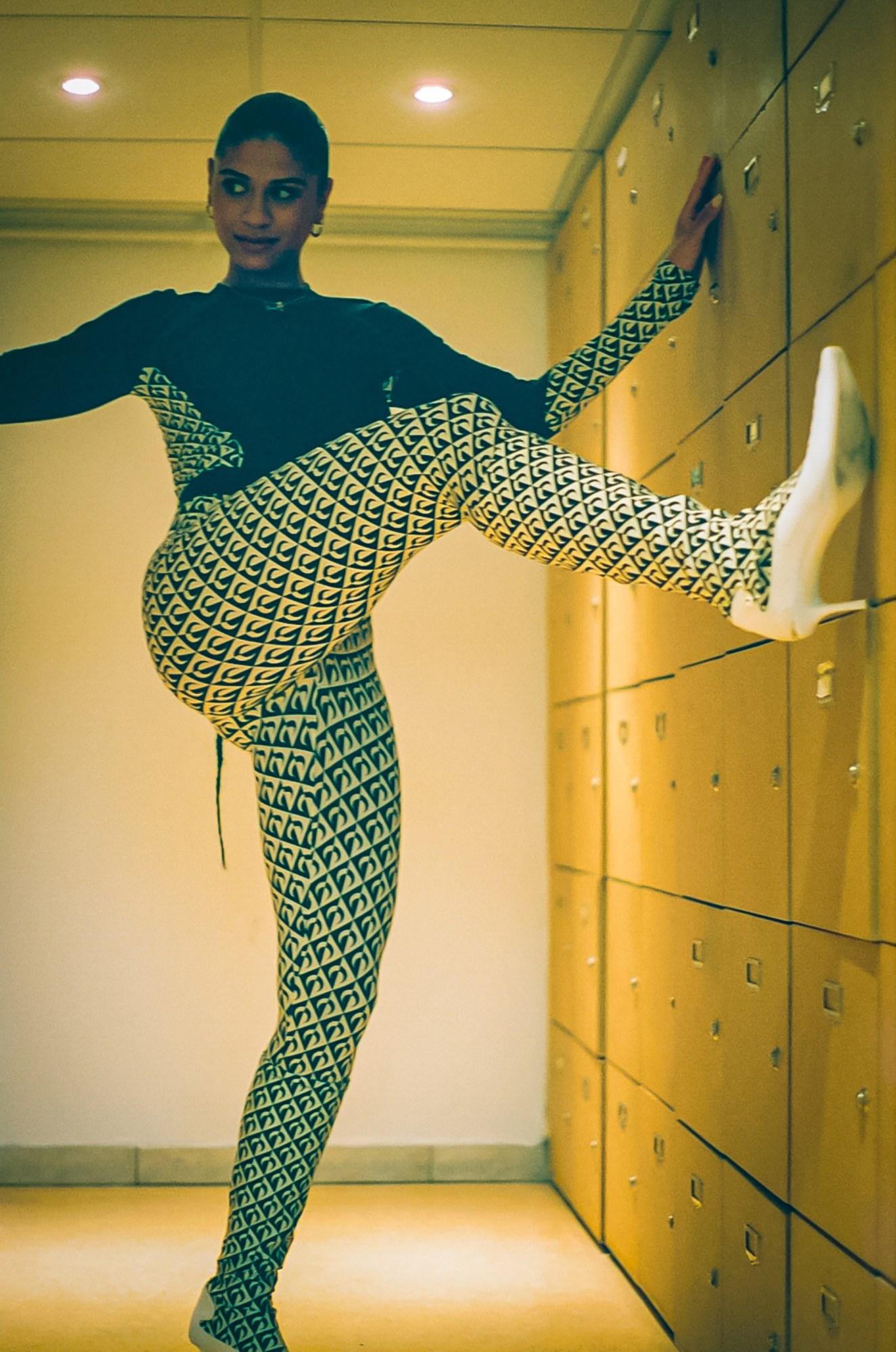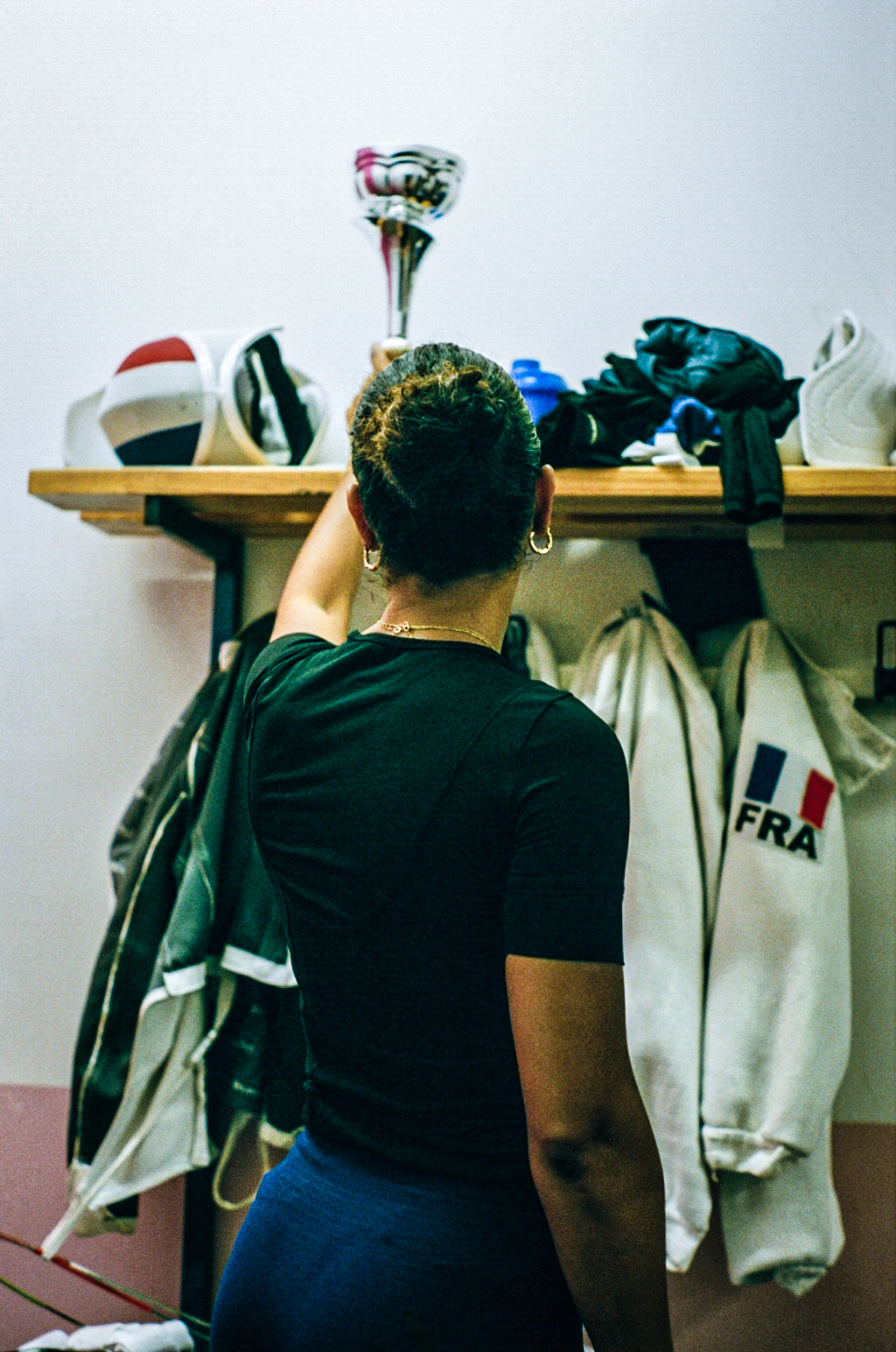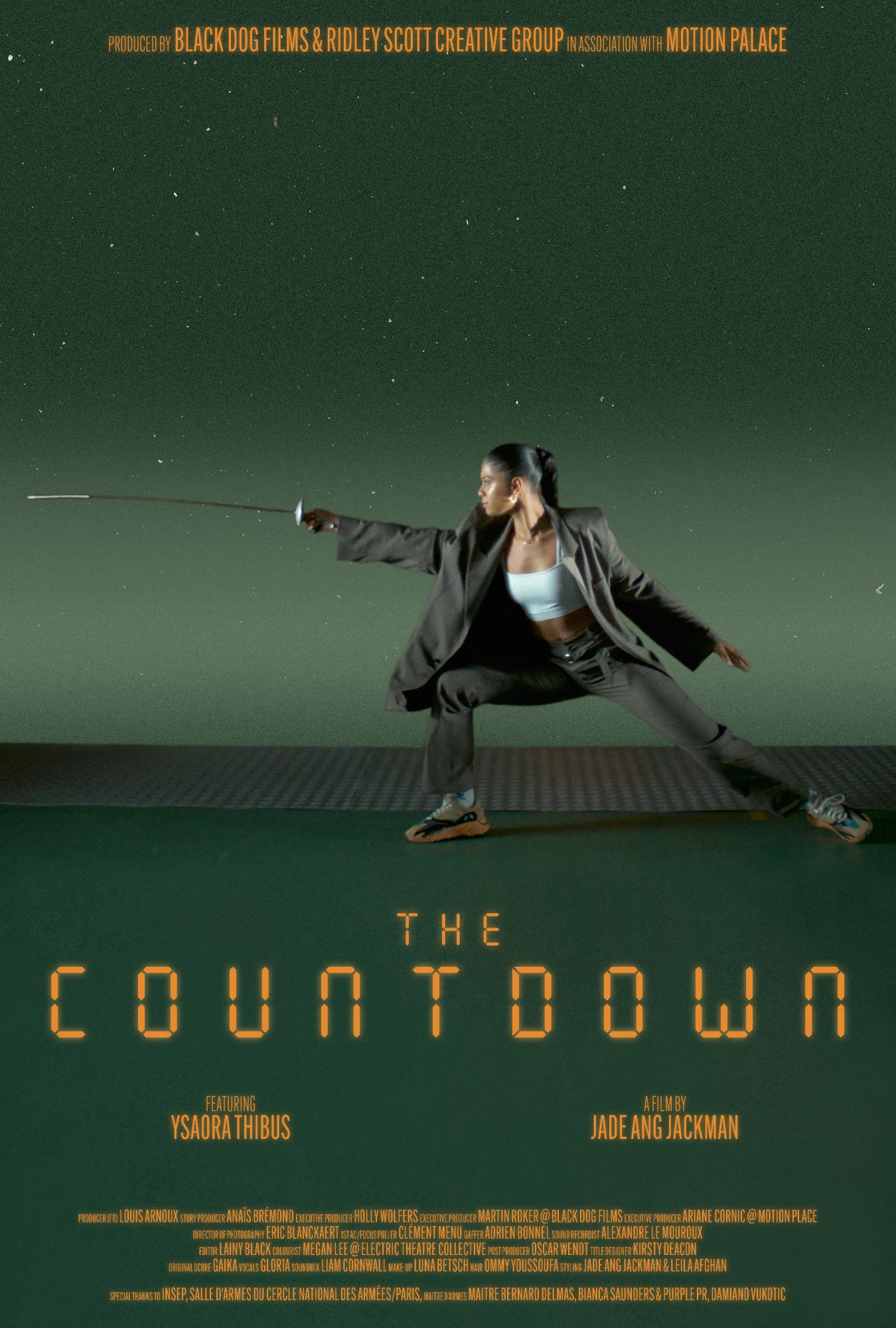We have our own ideas of what an Olympian is like. Stoic, determined and infallible, they’re framed as elite beings. But there are shades of humanism to them that you seldom capture in the brief moment they appear in a stadium. Jade Ang Jackman’s The Countdown is a documentary about the intense process of an Olympic fencer, France’s Ysaora Thibus, building herself up to confront her opponents at Tokyo 2021, and how that process changed when social distancing made training with one impossible.
Formed with immense imagination and style (Ysaora often wears a slick Bianca Saunders suit in lieu of her fencing uniform), The Countdown captures the many fragments of Ysaora: the person, the Olympian, and the point where those two intersect. These contemplations of her personhood inspired her to create Essentielle, an Instagram platform for the world’s most inspiring women in sport. And Ysaora, already inspiring, bolstered her reputation even more when Tokyo came around: she and her French teammates won silver medals in the women’s Foil tournament.
Here, Jade and Ysaora both describe the shared experience of working together to create The Countdown, including the boundaries of capturing an athlete’s process, the creativity at the heart of sport and what winning means outside of it.
Jade, the Olympian has long been a mythical figure for many. What attracted you to Ysaora’s story?
Whilst researching the lives of women in combat sports over lockdown, I discovered that only 4% percent of sports media was about women, and even less of it was created by female directors.
[With fencing], unlike something like sprinting or the shot-put, you need to have an opponent in front of you. I became really curious about what would happen to an athlete if they are training for a fight without an opponent. I’m interested in making action films, so I was very curious about women in combat sports, which is how I discovered Ysaora.
However, what I was interested in wasn’t just her being an Olympian, it was how she started [Essentielle] and had adapted to the changes in front of her. That adaptability was something universal.

Ysaora, the experience of training at this level must be intense already. What made you say yes to it being documented?
Jade was a filmmaker I admired stylistically. Her vision spoke to me. [I liked] the way she depicted women as warriors. When we first began to speak I could see she wanted to tell my story not solely as an Olympic fencer, but as a Black female athlete first. [That’s when] I wanted to be a part of this project. Jade also was very aware that my focus would be consumed by the Olympics and wanted to make it as easy on me as possible to document that journey without interrupting it. She really put in the work.
Can you each describe your relationship to each other as collaborators in this process? What boundaries were laid out from the beginning?
Jade: Initially, I didn’t even know if we would be able to film… I [suggested] shooting over Zoom. Then I realised I wanted this to reflect Ysaora’s personality as someone who is very stylish, creative and feels like a fresh voice. Someone not afraid to speak out about injustice in regards to race or gender. So, I suggested working with some amazing artists and designers: Bianca Saunders [made] the suit, rather than the traditional fencing attire; GLOR1A and GAIKA collaborated on the soundtrack. Ysaora was into those suggestions and then after that, it was very natural. We fitted everything around her training schedule with absolutely no question. I appreciated the trust.
Ysaora: Jade brought the vision for the project and was able to help me sew my story together. I knew that I would have to be vulnerable to talk about the things that embodied what it really meant to be a Black female athlete, so there were never any boundaries set. I honestly felt like I could trust Jade, and that she would understand me.

You both have dogged determination in your respective fields — but success through sports is famously perceived as a formulaic pursuit (work hard, reach goals), whereas creative success is far more fluid. Does working together on something like this help prove to others that those perceptions aren’t so rigid and exclusive to each endeavour?
Jade: Oh god, I don’t think I’m a very fluid creative at all! I plan a lot; I’m not really someone who it comes naturally to. In the pandemic, I started to train in kickboxing. My coach, Rob, is a sound designer as well as a martial artist; he and the sport [made] me more flexible and responsive. You definitely need that in film because you can’t control any of it, even if you plan — something unexpected will always happen.
Ysaora: I really disagree with the myth that sport is a ‘work hard and see results’ lifestyle. Sport is a very creative journey; it is far from linear. Part of the project was to express the concept of how quarantine made me reflect on what it really meant to be me, without fencing, without goals. I had to look within and find inner motivation, and the result of this was to use my voice and create Essentielle. Jade, on the other hand, [has] an athlete’s mentality. She would stop at nothing to get this project done, quarantining just to record me training. If anything, the project was really of two like-minded people approaching their respective fields in very similar ways.
Ysaora, you won silver with your team. Congratulations! Is there a real-life, everyday experience you can compare that feeling of winning to?Winning can many times feel like a moment of relief, the end of a long road. Winning comes in all forms and fencing is a particularly vivid journey, and a special one. One of the topics we discuss is my misconceptions around winning and losing. Winning is not just [relevant] in a life in sport, and life in sport is not only about winning.
Follow i-D on Instagram and TikTok for more on game-changing cultural figures.
